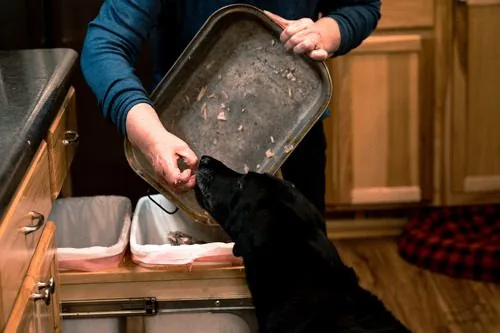Feeding your dog the right diet is essential for their health and happiness. While it may be tempting to share your favorite foods with your canine companion, not all human foods are safe for dogs. One common question many pet owners have is, “Can dogs eat ham?” In this blog, we’ll explore the ins and outs of feeding ham to your dog, potential risks, and healthier alternatives. If you have any concerns or need personalized advice, call Birch Lake Animal Hospital at (651) 426-2246 or book an appointment online!

Is Ham Safe for Dogs?
Ham, a popular meat choice for many humans, might seem like a tasty treat for your dog. However, it’s essential to understand the potential risks before sharing this food. Ham is generally high in fat and sodium, which can be harmful to your dog’s health. The high fat content can lead to pancreatitis, a severe condition that causes inflammation of the pancreas. Additionally, the high sodium levels can cause dehydration and other health issues.
Fat Content in Ham
The fat content in ham is significantly higher than what is considered healthy for dogs. Consuming high-fat foods can result in obesity and pancreatitis. Pancreatitis is particularly dangerous as it causes the pancreas to become inflamed, leading to severe abdominal pain, vomiting, and lethargy. Dogs with pancreatitis often require immediate veterinary care, and in severe cases, it can be life-threatening.
Sodium Levels in Ham
Ham is also packed with sodium, which can lead to serious health problems in dogs. Excessive sodium intake can cause increased thirst and urination, leading to dehydration. In severe cases, high sodium levels can result in sodium ion poisoning, which can cause symptoms such as vomiting, diarrhea, tremors, and even seizures. Long-term consumption of salty foods can also contribute to kidney damage and high blood pressure.
Potential Health Risks of Feeding Ham to Your Dog
Feeding ham to your dog comes with several health risks. Understanding these risks can help you make informed decisions about your dog’s diet.
Risk of Pancreatitis
As mentioned earlier, the high-fat content in ham can trigger pancreatitis. This condition requires prompt veterinary attention and can lead to long-term health complications. Dogs suffering from pancreatitis often exhibit signs of severe abdominal pain, vomiting, and decreased appetite. If you suspect your dog has pancreatitis, contact Birch Lake Animal Hospital immediately.
Digestive Issues
Ham can be difficult for dogs to digest due to its high fat and sodium content. Consuming ham can lead to digestive upset, including diarrhea and vomiting. These symptoms can be uncomfortable for your dog and may require veterinary intervention if they persist.
Potential for Bone Hazards
Another consideration is that ham often contains bones, which can be dangerous for dogs. Cooked bones, in particular, can splinter and cause choking or damage to the digestive tract. These bone fragments can lead to serious injuries, requiring emergency veterinary care. To avoid these risks, it’s best to keep ham bones away from your dog.
Healthier Alternatives to Ham for Your Dog
If you want to treat your dog to something special, there are many healthier alternatives to ham. These options can provide nutritional benefits without the risks associated with ham.
Lean Meats
Opt for lean meats such as chicken, turkey, or lean beef. These meats are lower in fat and can be a great source of protein for your dog. Always cook the meat thoroughly and avoid adding any seasonings, as some spices and additives can be harmful to dogs.
Dog-Friendly Vegetables
Many vegetables can be a healthy treat for your dog. Carrots, green beans, and sweet potatoes are excellent choices. These vegetables are low in calories and high in essential vitamins and minerals. They can be served cooked or raw, depending on your dog’s preference.
Commercial Dog Treats
There are many commercial dog treats available that are specifically formulated to be healthy and safe for dogs. Look for treats made from high-quality ingredients, and avoid those with added sugars or artificial preservatives. These treats are often designed to be nutritionally balanced, making them a better option than ham.
When to Contact a Veterinarian
If your dog has consumed ham and is showing signs of distress, it’s important to contact your veterinarian immediately. Symptoms to watch for include vomiting, diarrhea, excessive thirst, lethargy, and abdominal pain. These signs could indicate pancreatitis, sodium ion poisoning, or other health issues.
Preventative Measures
To prevent your dog from accidentally consuming ham, keep it out of reach and ensure that leftovers are disposed of properly. Educate family members and guests about the potential risks of feeding ham to your dog. Providing safe, dog-friendly treats can help reduce the temptation to share human food.
Making Informed Choices for Your Dog’s Diet
Understanding the potential risks and benefits of different foods can help you make informed choices about your dog’s diet. While it may be tempting to share your favorite foods with your furry friend, it’s crucial to consider their health and well-being. By opting for healthier alternatives and being aware of the dangers, you can ensure your dog enjoys a balanced and nutritious diet. If you have any questions or concerns about your dog’s diet, contact Birch Lake Animal Hospital at (651) 426-2246 or book an appointment online. Our team is here to help you make the best choices for your pet’s health and happiness.
Recent Posts
About Birch Lake Animal Hospital
The staff at Birch Lake Animal Hospital seeks to provide the best possible medical care for our highly-valued patients and clients.





